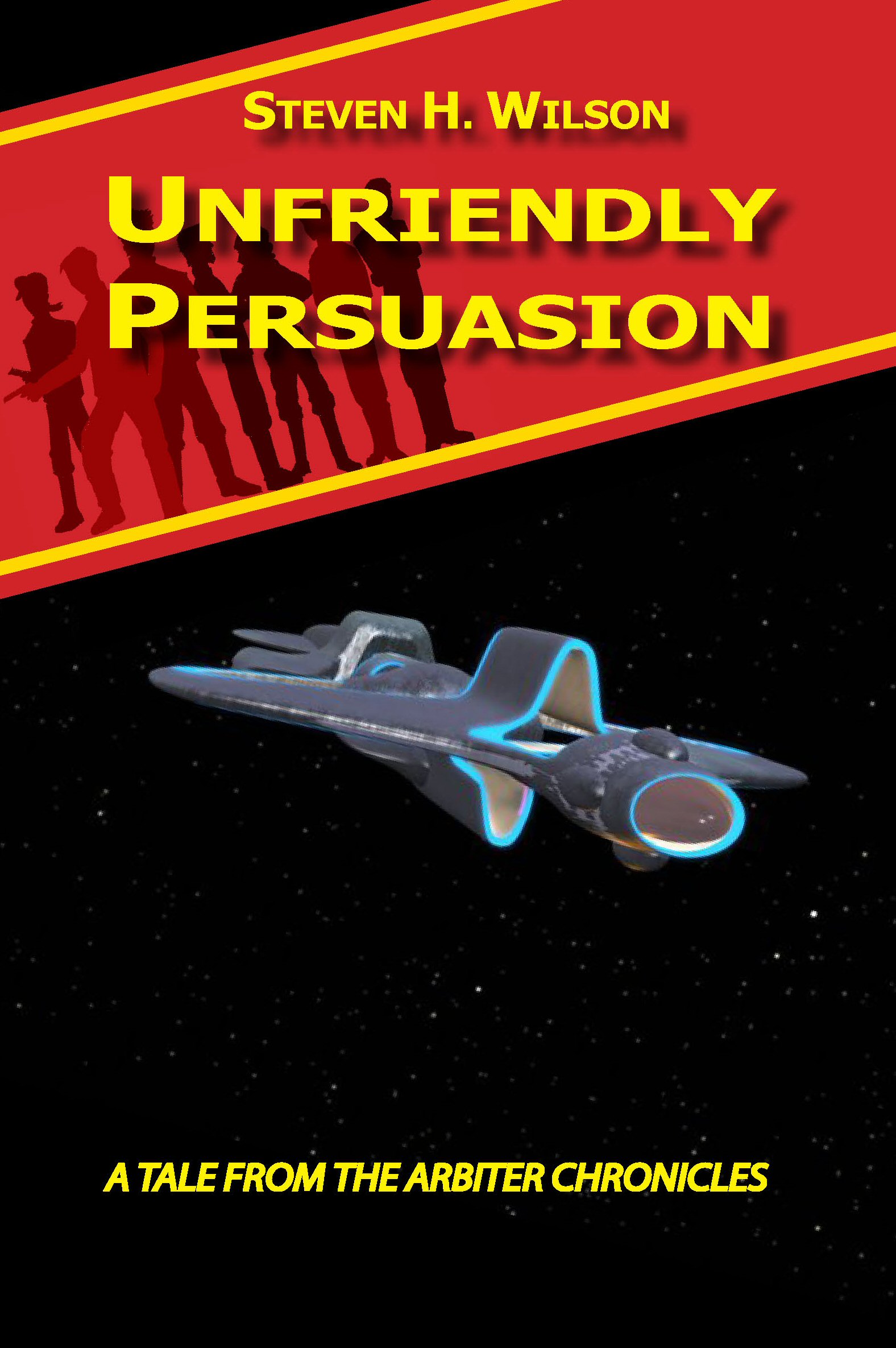 Well, after all, I can’t exactly review my own book, now can I? But what I can do is tell you a bit about the story of my third novel. Two stories, actually, the one in the book, and the one which relates how the book came to be.Unfriendly Persuasion is, as its subtitle states, a tale from the Arbiter Chronicles. I think most of my readers are familiar with the audio Science Fiction series I created a dozen or so years ago, but, just in case, here’s a capsule synopsis:Several centuries in the future, genetic engineering for superior health, ability and longevity has become the norm amongst the majority of the human race. Earth is no longer home to most of us, and is in fact one of the last refuges of the non-engineered. Old Home Terra is no longer a pleasant place to live, and many of its residents will do anything to escape. So Terry Metcalfe and Kevin Carson, two orphans from Virginia, have joined the Navy of the Confederated Worlds and become spacemen. Over the course of nineteen episodes of the series, they’ve found a home amongst engineered humans from various worlds, some of whom have extra-human abilities. Terry, Kevin and their cohorts’ first assignment was aboard the patrol vessel Arbiter, and as a result they took to referring to themselves as “the Arbiters.”
Well, after all, I can’t exactly review my own book, now can I? But what I can do is tell you a bit about the story of my third novel. Two stories, actually, the one in the book, and the one which relates how the book came to be.Unfriendly Persuasion is, as its subtitle states, a tale from the Arbiter Chronicles. I think most of my readers are familiar with the audio Science Fiction series I created a dozen or so years ago, but, just in case, here’s a capsule synopsis:Several centuries in the future, genetic engineering for superior health, ability and longevity has become the norm amongst the majority of the human race. Earth is no longer home to most of us, and is in fact one of the last refuges of the non-engineered. Old Home Terra is no longer a pleasant place to live, and many of its residents will do anything to escape. So Terry Metcalfe and Kevin Carson, two orphans from Virginia, have joined the Navy of the Confederated Worlds and become spacemen. Over the course of nineteen episodes of the series, they’ve found a home amongst engineered humans from various worlds, some of whom have extra-human abilities. Terry, Kevin and their cohorts’ first assignment was aboard the patrol vessel Arbiter, and as a result they took to referring to themselves as “the Arbiters.”
The Arbiter Chronicles has won thousands of listeners (over ten thousand, when last I looked) and received two awards, the Mark Time Silver medal and the Parsec Award; so I think maybe it’s something people enjoy.
My first novel, Taken Liberty, was also a tale from the Arbiter Chronicles. It told the story of Aer’La, a non-human member of the Arbiter’s crew. Aer’La was raised as a slave in the barbaric Varthan culture, and, some years earlier, had escaped and come to join the crew. I actually wrote this novel before I wrote any of the episodes. I waited about eight years to publish it, though, so the first series of eight episodes had been performed at conventions, and some of them had been podcast and even aired on some AM and FM stations around the US, before I released Taken Liberty. When I did release it, I framed it as a bookend to my first series of audio adventures and a lead-in to my second.
It seemed only natural, then, to use Unfriendly Persuasion as a capstone to my second series. In fact, a kernel of the story was already in my head as I wrote the final, two-hour episode of Series Two; and the two stories are really companion pieces. I wrote that two-hour finale, “Contents Under Pressure,” essentially as a movie script. I intentionally used the pacing of a cinematic film, borrowing a lot of inspiration from the pacing of Star Trek II: The Wrath of Khan, co-written by the great Harve Bennett. I’ve met Harve several times and interviewed him for my podcast. He’s a talented, gracious man who’s been very encouraging to me. His work directly inspired me to start writing fiction seriously back in high school.
“Contents Under Pressure” tells the tale of a war game gone wrong. Metcalfe, Carson and three of their fellows are being tested for possible promotion, and the final portion of the test is simulated combat. Metcalfe takes command of their immense war ship, the Titan, and everything quickly goes to hell. Alien terrorists catch them in a surprise attack, nigh-crippling the Titan, and leaving the young officers separated from their superiors and responsible for preventing an attack which could wipe out ten billion people. Spoiler! – they save the ten billion; but at a cost. “Contents Under Pressure” leaves Terry Metcalfe a hero to the Confederated Worlds, but wracked with guilt over the blood on his hands.
Unfriendly Persuasion picks up pretty much where “Pressure” left off. Titan is back in operation, Metcalfe is in therapy. Sestus Blaurich, Metcalfe’s spoiled, rich-kid nemesis who personally wet himself during the terrorist incursion, is on a book tour, taking credit for saving the Confederacy with all the power of his family’s P.R. machine behind him. There are still very clearly haves and have-nots in the Arbiters universe. Some of the “haves” are good guys: Metcalfe’s Captain, Jan Atal and his daughter Kayan’na eschew the vapid lifestyle of high society, preferring to explore space and find adventure. Sestus, on the other hand, is every frustrated middle-class person’s idea of the undeserving rich.
As a result of the near-destruction of the seat of Confederate power, the Navy is clamping down everywhere, a la the Patriot Act. (Anyone who thinks this foolishness is unique to the here and now has an overly optimistic understanding of human nature.) The Titan is sent to address an area of concern: a planet near the border of Confederate space, settled by an offshoot of the Society of Friends (the Quakers) long ago. Its inhabitants don’t understand the need for secure borders, and their world is in a strategic location. It could be used to stage another attack.
Worse, living among the pacifist humans on the planet, called Eleusis, are Qraitians. Qraitians? Yeah, Qraitians. Enemy aliens. The Big Bad of the Arbiters universe. (Actually, stupidity and bureaucracy are the Big Bads of the Arbiters universe, but, from a SciFi Action or Comic Book perspective, the Qraitians are the villains. Sorta like how Whiplash is the villain of Iron Man 2, but the real philosophical incarnation of evil was Justin Hammer.) It was some Qraitian extremists who nearly wiped out a big chunk of humanity just recently, and, as we humans are wont to do, the Confederate powers that be assume that most, if not all, Qraitians want to do the same.
The kicker? The pacifists don’t plan to cooperate. See, they think they’ve found God. Literally. God lives on the planet Eleusis, talks to them, works miracles in their presence. And once you’ve found God, you don’t walk away. Well, not unless God hands you some stone tablets and promises to visit again soon. Terry Metcalfe is a devout man of God, so he’s a natural to go and talk to these people.
They introduce him to God. God tells him he’s the Chosen One. Hilarity ensues. “Hilarity” being that Metcalfe announces he wants to stay here with these people, leave the military, join them in their resistance against the Navy.
So, why Quakers again? Didn’t I already have a Quaker as the lead character in my non-Arbiters novel, Peace Lord of the Red Planet? Well, yes, I did, much to the chagrin of the evangelical atheist crowd which has become very vocal in science fiction circles of late. (I have no problem with atheism. It’s a perfectly rational position to take. What I have a problem with is atheists who, like Christian missionaries of old, consider it their place to “civilize the savages” by forcing atheism down the throats of those who don’t believe in disbelief. If your atheism causes you to immediately dislike a religious person simply for being religious, you are not being rational, you are being a bigot.) In creating that hero, Dr. Shepherd Autrey, I did an awful lot of research. Not being a member of the Society of Friends myself, and having only limited opportunities to discuss their beliefs with those Friends I’ve known, I wanted my character to ring true in his actions and beliefs. My research triggered in me a great admiration for the Society of Friends’ members. In a nutshell, I hadn’t said, upon publishing “Peace Lord,” all I had to say about this remarkable belief system.
More, I set out to tell a tale of a man who’s essentially peaceful, yet still pursues a career in the military because it’s his only option. After being confronted with the realities of war, I needed him to come to a place, spiritually and factually, where he could see another way. In Unfriendly Persuasion, Terry Metcalfe meets, for the first time in his life, people who are actually making a practice of peace and good will toward others, as opposed to merely preaching that faith while living a life marked by violence and the use of force. He coincidentally encounters a power which is capable of seeing to it that the people of the planet Eleusis will be left in peace – a sort of cosmic realization of the American Right’s belief in peace through strength.
Really, until this point in his young life (Terry’s about 22 or 23), he hasn’t had the opportunity to think too much about his choices. He spent his orphan childhood trying to stay out of trouble and hoping that he’d get enough food to keep him alive. He fled his homeworld the only way he could – by signing up for military service. As a junior officer, he’s followed orders (mostly) and, while he’s witnessed death, he hasn’t had to be in the position of “kill or be killed.” Until just recently. While he performed well in that situation, it rattled him. Almost immediately following that traumatic encounter, he’s dropped into a world where he doesn’t have to kill or use force, a peaceful, beautiful world where can can stop worrying about how to stay alive and just… live. If you’re familiar with Maslow’s Hierarchy of Needs, you might observe that he’s finally had all of his more basic needs met, and now actually has the luxury to consider self-actualization and morality. In a way, Terry finds his own Shangri-La among the stars. That’s not a connection I made while writing the story, but Frank Capra’s Lost Horizon is one of my favorite movies, and a writer can’t help but be influenced by those works of art he admires.
All that probably sounds dry and philosophical, like I just dropped the Arbiters into a remake of “the Razor’s Edge.” I didn’t leave the suspense and drama out of the story, however. I wanted Eleusis to be a world of mystery (hence it takes its name from the Eleusinian Mysteries of Greek Myth.) “Mystery” here means not “whodunit?” but a system of secret knowledge, facts and practices unrevealed, the promise of a path to greater enlightenment. I wanted an atmosphere like unto some of the stories I really enjoyed as a kid, where humans discover remnants of ancient civilizations so advanced that they seemed to be magical, and so long-gone that you could never know all there was to know about them. The Robinsons encountered such civilizations a few times during the early episodes of Lost in Space, and the Alphans found the seeds of human civilization on a distant world in an episode of Space: 1999 called “The Testament of Arkadia,” one of my all-time favorite hours of television. Fittingly, Space: 1999 was known (and sometimes ridiculed) for most of its stories involving a “mysterious unknown force” which helped humanity, though it was never encountered or described. Viewers just gathered that it was there. In this novel, I introduced a “mysterious unknown force,” but it doesn’t stay unseen or unknown.
I wanted to re-create for readers how it felt for me to experience those stories. So, throughout the novel, the Arbiters encounter terrifying glimpses of the history of Eleusis – glimpses of unknown origin, making them more troubling. In order to kick-start the story with the right mood in an early chapter, I sent Kayan’na Atal on a vision quest, courtesy of the Pagan knowledge of her shipmate, the hundred-year-old Doctor Celia Faulkner. I understand from early readers that this segment is effective and effectively chilling. I hope that’s true.
I didn’t spare the angst and emotional drama, either. Friendships are put to the test as, in keeping with what 9/11 did to Americans, the Arbiters fall on different sides of the issue of increased security and reduced privacy in response to terrorism. Kevin Carson is alienated from his life-long friend Metcalfe, and that gave me an opportunity to reflect on their past together in some flashback scenes. I think I enjoyed writing those the most of any of the many distinct parts of the story.
Finally, because a novel gives you a much larger canvas than a one-hour or two-hour radio script, I was able at last to develop the bad guys, the Qraitians. On audio, the Qraitians never had to be anything much but voices on the other end of a comm channel. The Arbiters encountered a Qraitian in person once, but he was actually a human who’d had his mind imprinted with the memories of a Qraitian warrior. (And he was voiced on stage by the amazing George Takei! Sorry, there’s no available recording of that live performance.) So, while we assumed that a Qraitian could be made to appear human, I never had to answer the question “what does a Qraitian look / sound / smell like?” Unfriendly Persuasion introduces us to several Qraitians in person, so there was no way to dodge this question any longer.
Following lots of discussions with Dr. Beatrice Kondo, evolutionary biologist and friend of long-standing, I decided the Qraitians were evolved from reptiles. More humanoid probably than Star Trek’s Gorn, but still cold-blooded and completely different from their opponents. These “design an alien” conversations were quite fun. I think my favorite exchange began with “what would be the evolutionary need for an animal to have two sex organs?” She proceeded to explain the need for redundancy in some species, using snakes as an example. I had no idea of this oddity of snake anatomy! I was just looking to make a crass joke in dialogue! But it wasn’t all about middle-school humor, and I did have a chance to flesh out a militarist, collectivist culture which placed low value on individual life and tremendous emphasis on family and family reputation.
Of my three books, this is probably the one which came the closest to kicking the living s___ out of me. That may be because I took the least time to write it of any of my three novels so far, about six months. And I didn’t put it down and come back to it after the first draft, either. I plunged right into revisions immediately. As I did with “Peace Lord,” I found myself unsatisfied by the first ending I wrote. Indeed, for “Persuasion,” the final six chapters were so godawful that I refused to show them to anyone. I sent out the first 75% of the book to my beta readers and completely redevoloped the end while they read. There were diagrams and spreadsheets and lots of pages scrawled in red ink. It was an emotionally and creatively draining process, but, reading the finished product, I at least am satisfied that it paid off. I hope you all agree.
By the way, the book is dedicated to aforementioned Star Trek and Six Million Dollar Man / Bionic Woman producer Harve Bennett, and he already has a copy. I was thrilled to receive a very touching letter from him in return.
My friend Phil Giunta has been kind enough to review Unfriendly Persuasion on his blog, and I also spent a few minutes chatting about it with Scott and Miles from SciFi Diner recently.
Unfriendly Persuasion will be available in late February via Amazon, Barnes and Noble and pretty much any other Internet book outlet. If you’d like to order it from your favorite local bookstore (and you’re lucky enough to still have a local bookstore!) you can tell them it’s available from Ingram. There will also be eBook and audio versions available from Smashwords, Podiobooks.com, Overdrive and EBSCO. If you think of it, please encourage your local library to add it to their collection. Several hundred of them already own Taken Liberty and the downloadable versions of the Arbiter Chronicles audio adventures.
If you’d like to read the first chapter now, it’s available here.

 So, it was about 1981. My Mall still had an independent bookstore (It grew later to have two chain bookstores, and now it has none.) I was at a point where I was fascinated by Star Trek, probably fueled by Vonda McIntyre’s excellent novel, The Entropy Effect. Certainly, in 1981, no one was excited by the Star Trek movies, as Harve Bennett had not yet rescued the franchise. There was no TV Show. I had devoured Alan Dean Foster’s Star Trek Logs series, and had enjoyed (as I mentioned a few months back) a book call Bantam Books licensed Star Trek novel titled Devil World by Gordon Eklund.
So, it was about 1981. My Mall still had an independent bookstore (It grew later to have two chain bookstores, and now it has none.) I was at a point where I was fascinated by Star Trek, probably fueled by Vonda McIntyre’s excellent novel, The Entropy Effect. Certainly, in 1981, no one was excited by the Star Trek movies, as Harve Bennett had not yet rescued the franchise. There was no TV Show. I had devoured Alan Dean Foster’s Star Trek Logs series, and had enjoyed (as I mentioned a few months back) a book call Bantam Books licensed Star Trek novel titled Devil World by Gordon Eklund.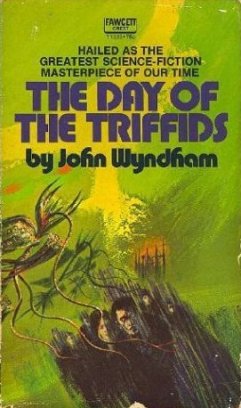
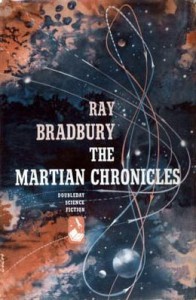
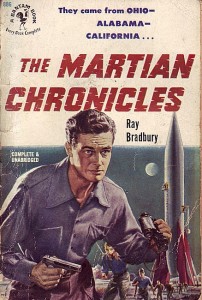
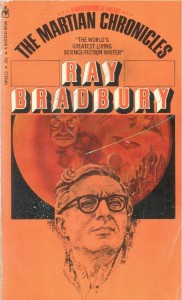
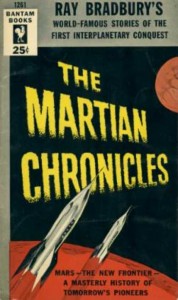
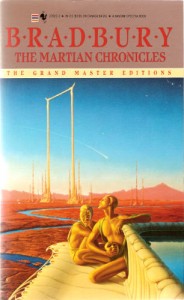
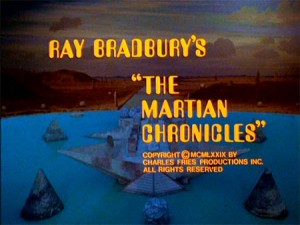
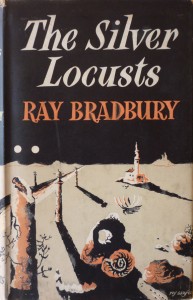
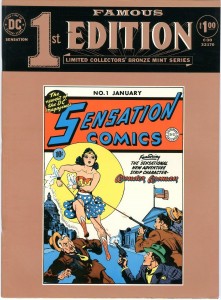
 Well, after all, I can’t exactly review my own book, now can I? But what I can do is tell you a bit about the story of my third novel. Two stories, actually, the one in the book, and the one which relates how the book came to be.Unfriendly Persuasion is, as its subtitle states, a tale from the Arbiter Chronicles. I think most of my readers are familiar with the audio Science Fiction series I created a dozen or so years ago, but, just in case, here’s a capsule synopsis:Several centuries in the future, genetic engineering for superior health, ability and longevity has become the norm amongst the majority of the human race. Earth is no longer home to most of us, and is in fact one of the last refuges of the non-engineered. Old Home Terra is no longer a pleasant place to live, and many of its residents will do anything to escape. So Terry Metcalfe and Kevin Carson, two orphans from Virginia, have joined the Navy of the Confederated Worlds and become spacemen. Over the course of nineteen episodes of the series, they’ve found a home amongst engineered humans from various worlds, some of whom have extra-human abilities. Terry, Kevin and their cohorts’ first assignment was aboard the patrol vessel Arbiter, and as a result they took to referring to themselves as “the Arbiters.”
Well, after all, I can’t exactly review my own book, now can I? But what I can do is tell you a bit about the story of my third novel. Two stories, actually, the one in the book, and the one which relates how the book came to be.Unfriendly Persuasion is, as its subtitle states, a tale from the Arbiter Chronicles. I think most of my readers are familiar with the audio Science Fiction series I created a dozen or so years ago, but, just in case, here’s a capsule synopsis:Several centuries in the future, genetic engineering for superior health, ability and longevity has become the norm amongst the majority of the human race. Earth is no longer home to most of us, and is in fact one of the last refuges of the non-engineered. Old Home Terra is no longer a pleasant place to live, and many of its residents will do anything to escape. So Terry Metcalfe and Kevin Carson, two orphans from Virginia, have joined the Navy of the Confederated Worlds and become spacemen. Over the course of nineteen episodes of the series, they’ve found a home amongst engineered humans from various worlds, some of whom have extra-human abilities. Terry, Kevin and their cohorts’ first assignment was aboard the patrol vessel Arbiter, and as a result they took to referring to themselves as “the Arbiters.”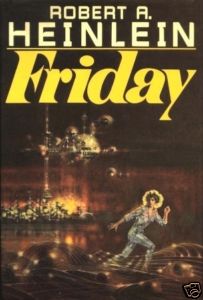 I received a copy of Heinlein’s Friday as a Christmas gift my senior year in high school. It had been out since the previous April, but I guess I wasn’t yet a rabid enough Heinlein fan to have picked it up the day it came out. Friday was, I believe, the book that changed me into that rabid fan.
I received a copy of Heinlein’s Friday as a Christmas gift my senior year in high school. It had been out since the previous April, but I guess I wasn’t yet a rabid enough Heinlein fan to have picked it up the day it came out. Friday was, I believe, the book that changed me into that rabid fan.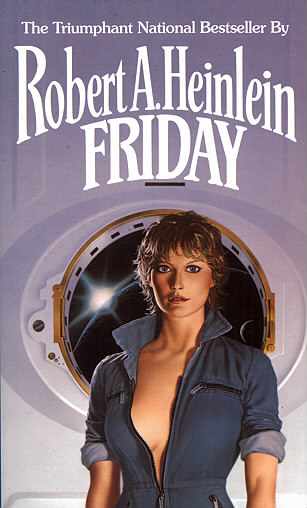 From here, Heinlein essentially abandoned the “boy meets world(s)” theme. Puppet Masters depicts spies handling an alien invasion; Double Star tells of an actor who must impersonate a head of state; Stranger in a Strange Land turns the “boy in space” idea on its ear, by bringing a human boy raised as a Martian to Earth; Glory Road is couched as a fantasy story, its hero not anyone you would call “boy;” Farnham’s Freehold catapults some members of Country Club Suburbia into a post-nuclear dystopia; The Moon is a Harsh Mistress is the story of a war of independence waged by a lunar colony against Earth. Time Enough for Love is the memoir of a millennia-old man who first appeared in Methuselah’s Children, where he led the escape of his fellow long-lifers from Earth; In I Will Fear No Evil, an old man’s brain is place in the body of a young woman, and, finally, in Number of the Beast, four geniuses narrate the story of their flight from earth as agents unknown try to assassinate them, and their subsequent escape into a nigh-infinite multiverse.
From here, Heinlein essentially abandoned the “boy meets world(s)” theme. Puppet Masters depicts spies handling an alien invasion; Double Star tells of an actor who must impersonate a head of state; Stranger in a Strange Land turns the “boy in space” idea on its ear, by bringing a human boy raised as a Martian to Earth; Glory Road is couched as a fantasy story, its hero not anyone you would call “boy;” Farnham’s Freehold catapults some members of Country Club Suburbia into a post-nuclear dystopia; The Moon is a Harsh Mistress is the story of a war of independence waged by a lunar colony against Earth. Time Enough for Love is the memoir of a millennia-old man who first appeared in Methuselah’s Children, where he led the escape of his fellow long-lifers from Earth; In I Will Fear No Evil, an old man’s brain is place in the body of a young woman, and, finally, in Number of the Beast, four geniuses narrate the story of their flight from earth as agents unknown try to assassinate them, and their subsequent escape into a nigh-infinite multiverse.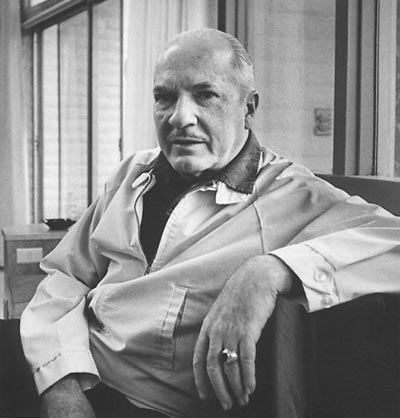 Like the heroes of Have Space Suit Will Travel and Between Planets, she covers a lot of geography and is introduced to the alien world that is a space ship, a small foreign culture unto itself. Like all of Heinlein’s travelers, she winds up frequently down on her luck, stranded with few resources, and aided by kind-hearted strangers who ask only that she pay their kindness forward by way of recompense. And of course she has a mentor, an older man who, while gruff and demanding, nonetheless has her best interests at heart. Mr. Miyagi-like, Boss sets her to baffling tasks, the relevance of which she learns only long after she has undertaken them. Ultimately, she succeeds by being clever and resourceful, by learning to look past the face value of things, and by making friends she can count on. In Heinlein’s world, this makes her firmly “one of the boys.”
Like the heroes of Have Space Suit Will Travel and Between Planets, she covers a lot of geography and is introduced to the alien world that is a space ship, a small foreign culture unto itself. Like all of Heinlein’s travelers, she winds up frequently down on her luck, stranded with few resources, and aided by kind-hearted strangers who ask only that she pay their kindness forward by way of recompense. And of course she has a mentor, an older man who, while gruff and demanding, nonetheless has her best interests at heart. Mr. Miyagi-like, Boss sets her to baffling tasks, the relevance of which she learns only long after she has undertaken them. Ultimately, she succeeds by being clever and resourceful, by learning to look past the face value of things, and by making friends she can count on. In Heinlein’s world, this makes her firmly “one of the boys.”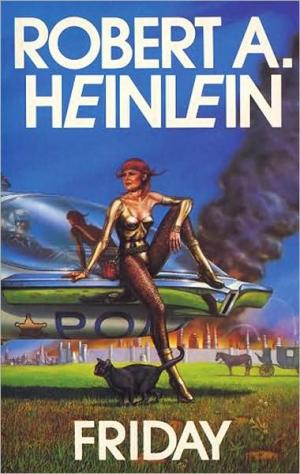
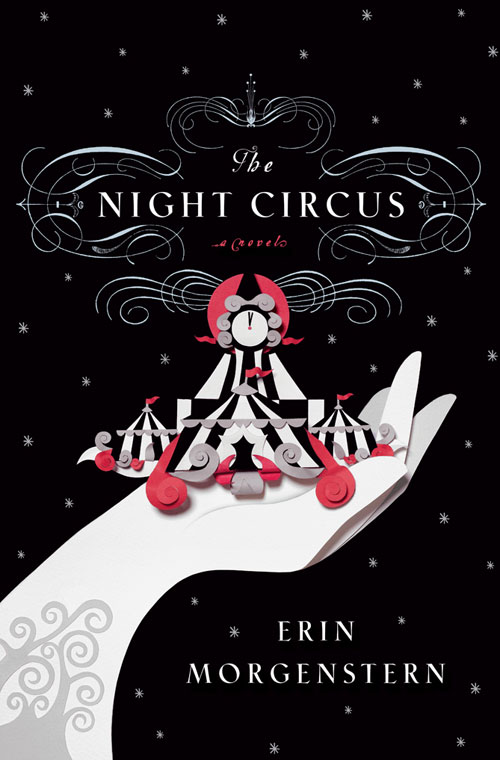


 Resentment of the immortal has been a common theme in fictional works which addressed immortality. In Heinlein’s
Resentment of the immortal has been a common theme in fictional works which addressed immortality. In Heinlein’s  But Tarzan and John Carter got to be immortal alongside their loved ones. They didn’t ever really have to reflect on what it was like to watch those they cared for age and die while they remained young and perfect. Nor did the comparatively young Lazarus Long in Methuselah’s Children. They were too busy hiding their immortality, running from those who coveted it, or just plain ignoring the short-lived.
But Tarzan and John Carter got to be immortal alongside their loved ones. They didn’t ever really have to reflect on what it was like to watch those they cared for age and die while they remained young and perfect. Nor did the comparatively young Lazarus Long in Methuselah’s Children. They were too busy hiding their immortality, running from those who coveted it, or just plain ignoring the short-lived. Isaac Asimov gave us a glimpse into the long-lifer-loves-short-lifer scenario from a dual perspective in
Isaac Asimov gave us a glimpse into the long-lifer-loves-short-lifer scenario from a dual perspective in  But an immortal character I wrote about last week, Max August, does have expectations that his dead loved one will return, and they seem sane because his creator deals with immortality on two levels. Max, an alchemist, is physically immortal as a result of his craft. He lost his wife, Valerie, years ago on New Year’s Eve; but Valerie is likewise immortal. She’s just not physically immortal, she’s spiritually immortal. For many All Hallows Eves, Valerie contacts Max to let him know she’s still there. As of Max’s latest adventure, The Plain Man, Max is expecting Val’s return in the flesh, and Val is… well, we’re not sure what Val is. We think she’s trying to come back, but the forces of evil are doing their damndest to stop her.
But an immortal character I wrote about last week, Max August, does have expectations that his dead loved one will return, and they seem sane because his creator deals with immortality on two levels. Max, an alchemist, is physically immortal as a result of his craft. He lost his wife, Valerie, years ago on New Year’s Eve; but Valerie is likewise immortal. She’s just not physically immortal, she’s spiritually immortal. For many All Hallows Eves, Valerie contacts Max to let him know she’s still there. As of Max’s latest adventure, The Plain Man, Max is expecting Val’s return in the flesh, and Val is… well, we’re not sure what Val is. We think she’s trying to come back, but the forces of evil are doing their damndest to stop her. I think, though, that our immortal companions, the fictional ones, the myths, serve a purpose even in this capacity. They can, if we let them, remind us that youth doesn’t have to go away, that the best in us doesn’t have to age. Indeed, it can go on forever. So even though we look at them differently from year to year, I think spending a little time with ageless childhood friends can be healthy. It allows us to, as Ellen Degeneres said in a stand up routine a few years ago, “play with our inner child.” She pointed out that, if we didn’t, our inner child could be just as spiteful and vindictive as any other child who’s being ignored.
I think, though, that our immortal companions, the fictional ones, the myths, serve a purpose even in this capacity. They can, if we let them, remind us that youth doesn’t have to go away, that the best in us doesn’t have to age. Indeed, it can go on forever. So even though we look at them differently from year to year, I think spending a little time with ageless childhood friends can be healthy. It allows us to, as Ellen Degeneres said in a stand up routine a few years ago, “play with our inner child.” She pointed out that, if we didn’t, our inner child could be just as spiteful and vindictive as any other child who’s being ignored.